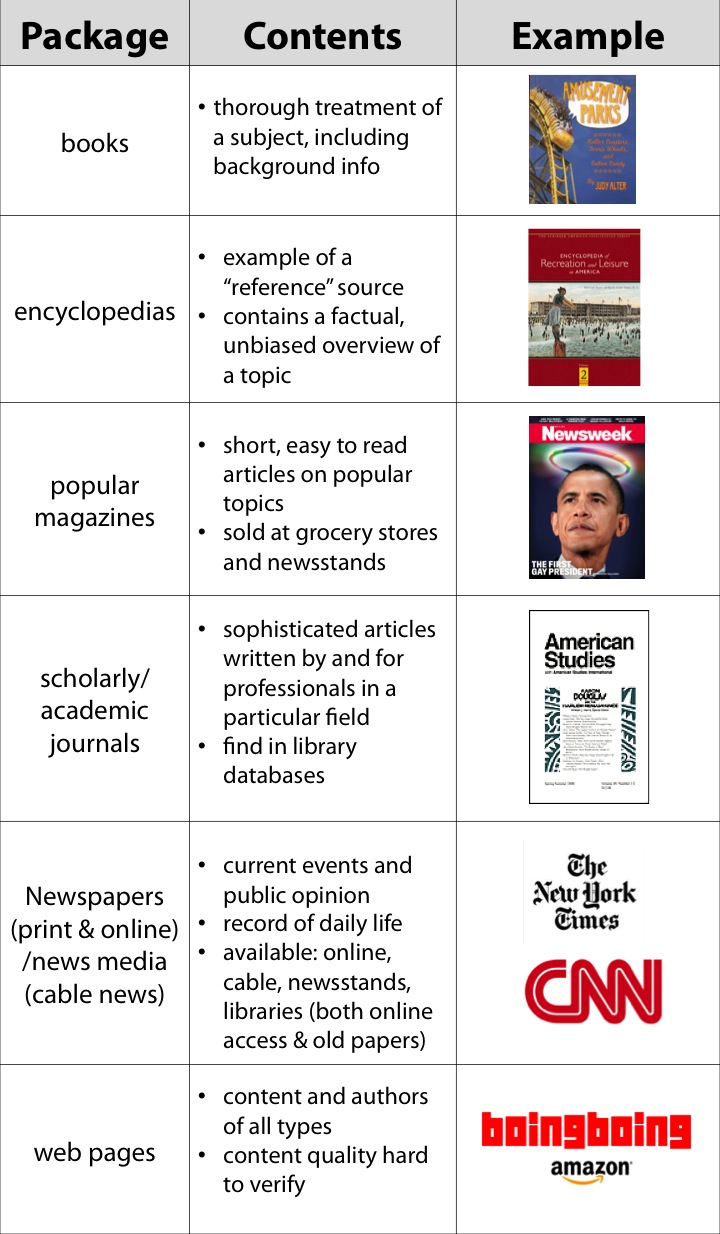Do us a favor: go to Google, type in "amusement parks," and look at the results. Go on, we'll wait here.

Done? Okay. You should get a real mix of stuff: links to major theme parks in the United States, news articles about theme parks, a Wikipedia article, and so on. That's already a lot of different types of information, and you've only checked in one place!
When we talk about different types of information, we need to consider both the content and the package.
- Content is the information itself: fiction, scholarly research, biographical info, statistics, an interview, a song, etc.
- The package is the container that the information comes in: books, web pages, newspapers, DVDs, and so on. Some packages are in print format and others are electronic.
Why does this matter? Why do you need to think about your information options before you start researching your topic?
- If you need a certain kind of content, you have to know which package to look in. For example, scholarly articles (content) are only found in academic journals (package). If you look in a different package, like an encyclopedia, it won't be there.
- Search tools often correspond to a certain kind of package. You use Google (tool) to find web pages (package). You use iTunes (tool) to find music files (package). You use the library catalog (tool) to find books (package).
Note: this tidy distinction becomes blurry as information moves online. A few examples:
- News (content) can be found both in newspapers (package) or on websites (package).
- Web sites are a type of package that has MANY kinds of content: scholarly articles, blogs written by amateurs, pictures of cats, the text of an entire book, and so on.
This all leads us to the 2nd step of the research process: Select the right research tool.
Taking a minute to think about the content you need and the package it comes in will help you pick the right tools, not to mention save time. You'll learn more about selecting and finding the right package in 1E.


